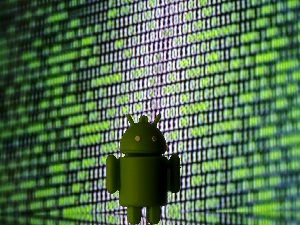



Date:20/07/18
 It has been nearly two years since the first evidence of Google's 'Fuchsia' operating system surfaced. It uses the 'Zircon' real-time kernel in place of Linux, and is being designed to run on everything from embedded devices to laptops. There has been speculation for years that Fuchsia is a possible Android replacement, and a new report from Bloomberg seems to confirm that.
It has been nearly two years since the first evidence of Google's 'Fuchsia' operating system surfaced. It uses the 'Zircon' real-time kernel in place of Linux, and is being designed to run on everything from embedded devices to laptops. There has been speculation for years that Fuchsia is a possible Android replacement, and a new report from Bloomberg seems to confirm that.
According to people familiar with the project, Fuchsia is being designed to replace every operating system currently shipping on Google's consumer hardware. That includes Android, Chrome OS, and the embedded variants of Android that power the Google Home and Chromecasts.
The project's engineers want Fuchsia to ship on connected home devices (like the Google Home) within three years, then on laptops after that. The final goal will be replacing Android with Fuchsia, which could happen within five years. Sundar Pichai (CEO of Google) and Hiroshi Lockheimer (SVP of Android and Chrome OS) have yet to approve a road map for replacing Android.
Fuchsia is now being worked on by over 100 engineers, including veteran designer Matias Duarte, who is helping the project on a part-time basis. Fuchsia has already caused internal disputes at least once, when Google's advertising department clashed with engineers over some of Fuchsia's increased privacy features. The ad team won that particular dispute, according to one person.
Bloomberg didn't go into detail about how Fuchsia would handle backwards-compatibility. The operating system would likely be dead on arrival without support for Android applications, but Google could very well integrate the same Android container into Fuchsia that is currently being used on Chrome OS.
Google’s Fuchsia OS reportedly being worked on by 100+ engineers, could ship on phones within five years
 It has been nearly two years since the first evidence of Google's 'Fuchsia' operating system surfaced. It uses the 'Zircon' real-time kernel in place of Linux, and is being designed to run on everything from embedded devices to laptops. There has been speculation for years that Fuchsia is a possible Android replacement, and a new report from Bloomberg seems to confirm that.
It has been nearly two years since the first evidence of Google's 'Fuchsia' operating system surfaced. It uses the 'Zircon' real-time kernel in place of Linux, and is being designed to run on everything from embedded devices to laptops. There has been speculation for years that Fuchsia is a possible Android replacement, and a new report from Bloomberg seems to confirm that.According to people familiar with the project, Fuchsia is being designed to replace every operating system currently shipping on Google's consumer hardware. That includes Android, Chrome OS, and the embedded variants of Android that power the Google Home and Chromecasts.
The project's engineers want Fuchsia to ship on connected home devices (like the Google Home) within three years, then on laptops after that. The final goal will be replacing Android with Fuchsia, which could happen within five years. Sundar Pichai (CEO of Google) and Hiroshi Lockheimer (SVP of Android and Chrome OS) have yet to approve a road map for replacing Android.
Fuchsia is now being worked on by over 100 engineers, including veteran designer Matias Duarte, who is helping the project on a part-time basis. Fuchsia has already caused internal disputes at least once, when Google's advertising department clashed with engineers over some of Fuchsia's increased privacy features. The ad team won that particular dispute, according to one person.
Bloomberg didn't go into detail about how Fuchsia would handle backwards-compatibility. The operating system would likely be dead on arrival without support for Android applications, but Google could very well integrate the same Android container into Fuchsia that is currently being used on Chrome OS.
Views: 782
©ictnews.az. All rights reserved.Similar news
- Analysis: New Internet rules will spawn battle for "dots"
- Global software market to bounce back in 2011
- Gartner: Top security vendors are losing market share
- UK health firm signs £1.3m deal for new financial management software
- Suspected LulzSec and Anonymous members arrested in UK
- Dutch study possible Iran hacking of government web sites
- Turkish net hijack hits big name websites
- Coverity software testing package ensures search for God Particle stays on track
- Progress Revolution 2011: IT must focus on adaptability
- French Postal Service Implements Cameleon Software
- Microsoft targets $520bn intelligent device market with next version of Windows Embedded
- Increase in Azerbaijani software market hits 25 percent in 2011
- Microsoft shuffles execs to better manage Windows 8, smartphone ops
- Adobe Q4 profit falls 35%
- Worldwide Database and Data Integration Software Market Expected to Grow 11.6% in 2011, According to IDC





















